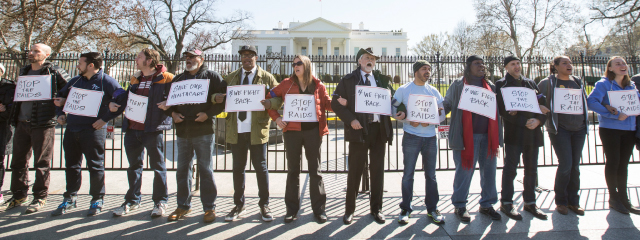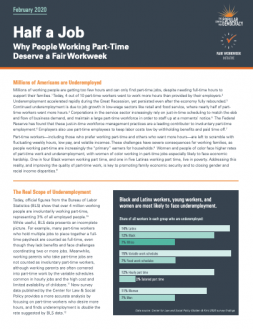Half a Job: Why People Working Part-Time Deserve a Fair Workweek
Millions of working people are getting too few hours and can only find part-time jobs, despite needing full-time hours to support their families. Today, 4 out of 10 part-time workers want to work more hours than provided by their employers. Underemployment accelerated rapidly during the Great Recession, yet persisted even after the economy fully rebounded. Continued underemployment is due to job growth in low-wage sectors like retail and food service, where nearly half of part-time workers want more hours. Corporations in the service sector increasingly rely on just-in-time scheduling to match the ebb and flow of business demand, and maintain a large part-time workforce in order to staff up at a moments’ notice. The Federal Reserve has found that these just-in-time workforce management practices are a leading contributor to involuntary part-time employment. Employers also use part-time employees to keep labor costs low by withholding benefits and paid time off. Part-time workers—including those who prefer working part-time and others who want more hours—are left to scramble with fluctuating weekly hours, low pay, and volatile incomes. These challenges have severe consequences for working families, as people working part-time are increasingly the “primary” earners for households. Women and people of color face higher rates of part-time work and underemployment, with women of color working in part-time jobs especially likely to face economic hardship. One in four Black women working part time, and one in five Latinas working part time, live in poverty. Addressing this reality, and improving the quality of part-time work, is key to promoting family economic security and to closing gender and racial income disparities. Download this factsheet to learn more.













